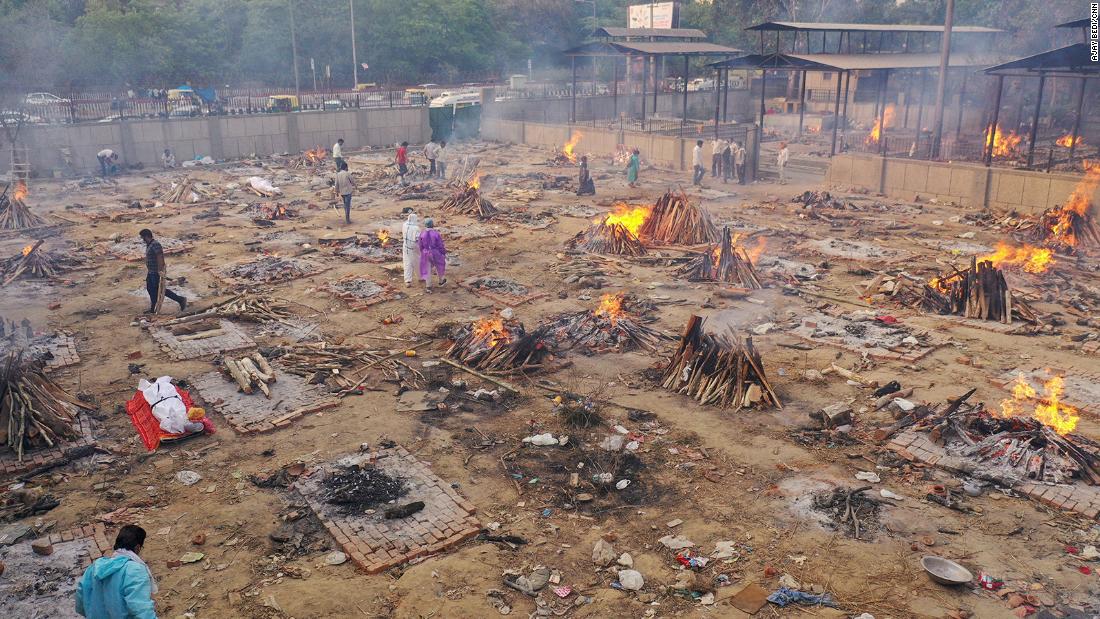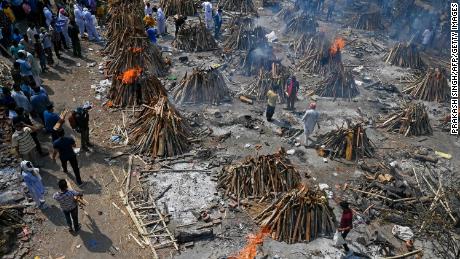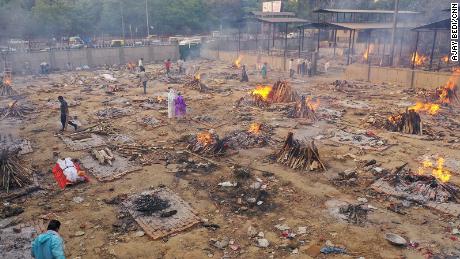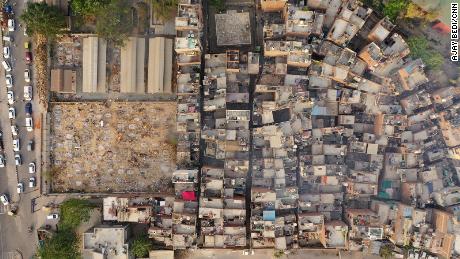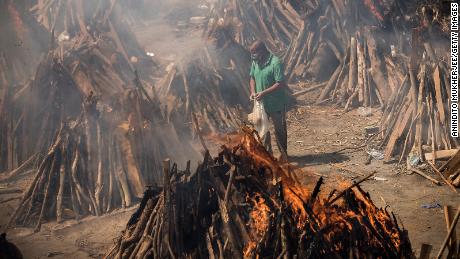Anger towards India’s leaders grows, especially among those facing the deluge of death
“Before the pandemic, we used to cremate eight to 10 people (daily),” said Jitender Singh Shunty, head of the Seemapuri crematorium in eastern New Delhi. “Now, we are cremating 100 to 120 a day.”
Demand is so high that Seemapuri crematorium has expanded into its parking lot, where dozens of workers construct new cremation platforms from bricks and mortar. There is so little space and so many bodies that families have to get a ticket and wait in line for their turn.
So many fires have been lit in New Delhi that wood stocks are running low.
In the meantime, families are having to pay for the wood to burn their relatives’ bodies. Many see no choice, as they jockey for space at crowded crematoriums.
Cremation is considered an important part of Hindu funeral rites, due to the belief the body must be destroyed for the soul to proceed to reincarnation.
Barkha Dutt, a columnist at the Washington Post, lost her father to Covid-19 this week after he was ferried to the hospital on a faulty oxygen cylinder.
“When we went to cremate him, there was no space at the cremation ground — there was a physical fight that erupted between multiple families,” she said Wednesday. “We had to call the police to cremate my father.”
“Despite my devastation, I was luckier than most Indians,” Dutt added. “I think of the families that need cremation grounds, where bodies have been lying on the floor.”
‘They keep coming’
India reported almost 380,000 new infections on Thursday, marking yet another global record for the highest single-day case count. More than 3,600 people died.
“We start getting bodies in the morning and they keep coming in one after the other,” said Suman Kumar Gupta, an official at Delhi’s Nigambodh Ghat cremation site, on Wednesday.
For workers and volunteers at the crematorium, handling hundreds of bodies daily and witnessing a constant outpouring of anguish takes a heavy toll. At the Seemapuri crematorium, a number of exhausted volunteers slumped against a wall, getting a little precious sleep before continuing with their work.
In between building the additional pyres and bringing out bodies, Shunty, the crematorium head, sits with grieving families to offer comfort and support.
“We have cremated 55 bodies in the last five hours … (It) will be 100 by the end of the day,” he said on Wednesday morning. “I am tired — but this is not the time to get tired. This is the time to work for the nation, for humanity, and save lives.”
The most harrowing part of his job, however, was seeing “young people die of Covid,” Shunty said. “We have seen families who lost two to three young family members. I don’t know what has happened to Delhi — it’s really disheartening.”
“In this wave of coronavirus, the young people are getting infected,” said Chief Minister Kejriwal in a video tweeted on April 15. “I appeal to all the young people to take care of themselves.”
‘We have been failed’
India’s government is scrambling to take action as the virus spreads. Numerous states and cities have implemented new restrictions and shut down businesses in an attempt to contain the outbreak.
But these supplies need time to be distributed and oxygen plants need to be built. For some of the hardest-hit cities, such as New Delhi, the lack of immediate help and accessible resources means the bodies will keep piling up until assistance arrives.
“The situation will worsen because Delhi doesn’t have oxygen, beds, ventilators, plasma injections,” said Shunty. “I am very angry, and at the same time guilty because we cannot do more. The people who should be dealing with this are missing in action. They made promises and vanished.”
“We have limited resources with a fleet of 18 ambulances. We are picking up 50 to 55 dead bodies every day,” he added. “So I am very angry because people who should be doing this are not doing it, and so volunteers are having to do it.”
Families who have lost their loved ones, too, have been left with no closure or relief.
“I’m speaking as an angry Indian who feels betrayed at the callousness and the tone deafness and the complete denial I continue to see around,” said Dutt, the columnist.
“We have been failed by policymakers, by politicians. We’ve been failed by the government that did not think to put in place a contingency plan for the second wave.”
That assertion rings hollow in her loss and grief — she has now lost both parents, and feels as if she has been “orphaned today,” Dutt said.
“My father’s last words to me were, ‘I’m choking. Please give me treatment.’ And I tried my best,” she said. “I have nobody left.”
![]()


